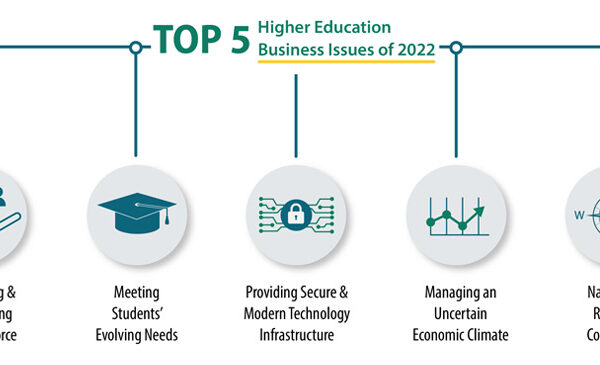Vocational education and training builds citizens’ skills to stay employable and meet the demands of the economy while preparing them for the workforce.
Why is training and education for occupational careers important?
Vocational education and training (VET) equips students with critical skills that improve their employability, foster personal growth, and promote civic engagement. Research and innovation, competitiveness, and enterprise performance are all enhanced by VET.
Europe’s VET systems are dependent on a robust network of VET stakeholders. Social partners, like companies and labor unions, are involved in the governance of these networks through various bodies, like chambers, committees, and councils.
Initial training and education for vocational careers (I-VET)
I-VET is typically administered to students before to their entry into the workforce at the upper secondary and post-secondary levels. It either happens in an educational setting (mostly in the classroom) or in a workplace setting (such training facilities and businesses).
50% of young Europeans between the ages of 15 and 19 take the upper secondary I-VET exam on average. This EU average, however, conceals notable regional variations in involvement, which range from 15% to over 70%.
VET that is ongoing (C-VET)
C-VET is conducted following either the start of formal schooling and training or the start of employment. Its objectives include improving residents’ knowledge, assisting them in learning new skills, retraining, and advancing their professional and personal development. Most of it is related to work.
What is the objective?

By 2025, at least 60% of recent VET graduates should have benefited from exposure to work-based learning during their vocational education and training, according to a target set by Member States through the EU Council.
Regarding VET, what is the EU doing?
Europe and Denmark first collaborated on vocational education and training in 2002 during the Copenhagen process. Over time, it has been improved even more, as seen by the Riga Conclusions and the Bruges Communiqué.
The European Education Area program has designated vocational education and training as a priority area for collaboration between 2021 and 2030.
Council Recommendation for VET in 2020
A recommendation on vocational education and training for sustainable competitiveness, social justice, and resilience was endorsed by the EU Council on November 24, 2020. The Recommendation outlines essential guidelines for making sure that vocational education and training is flexible enough to quickly adjust to the demands of the job market and offers both adults and children high-quality learning opportunities.
It lays a lot of emphasis on enhanced quality assurance, work-based learning opportunities, apprenticeships, and vocational education and training that is more flexible.
Additionally, the Recommendation incorporates an updated EQAVET Framework with quality indicators and descriptors, replacing the EQAVET – European Quality Assurance in Vocational Education and Training – Recommendation. The previous ECVET Recommendation is repealed.
2020 Osnabrück Declaration
The “Osnabrück Declaration 2020 on vocational education and training as an enabler of recovery and just transitions to digital and green economies” was endorsed on November 30, 2020, by ministers responsible for vocational education and training from EU Member States, Candidate Countries, EEA-EFTA (European Economic Area – European Free Trade Association) countries, European social partners, and the Commission.
The European associations of VET providers (VET4EU2) and representatives of VET students (OBESSU, European Apprentices Network) endorse the Osnabruck Declaration.
In order to supplement the Council Recommendation on vocational education and training for sustainable competitiveness, social justice, and resilience, it lays out further policy actions for the years 2021–2025:
encouraging greatness and resilience via high-quality, flexible, and inclusive VET
creating a new culture of lifelong learning that emphasizes the value of C-VET and how digitalization can support VET sustainability
create international VET and a European Education and Training Area.
An opinion on VET’s future was adopted by the Advisory Committee on Vocational Training, and this will influence the Commission’s policies after 2020.
Erasmus+ VET financing tools
The estimated budget of the Erasmus+ program for youth training, education, and sport for the years 2021–2027 is €26.2 billion. The financing for this program is almost twice as much as that of its predecessor (2014-2020). Annually, almost 130,000 VET students and apprentices, along with 20,000 VET employees, take use of Erasmus+ mobility opportunities, helping to meet the goal of 8% of all VET students receiving an overseas mobility by 2025.
Hundreds of Alliances for Innovation, 100 networks of Centers of Vocational Excellence, initiatives with other nations to increase VET capacity, and many innovative VET projects will all be funded under the program. Additionally, it annually supports over 600 cooperative partnerships overseen by the National Agencies. Learn more about the opportunities for VET under Erasmus+.
Plus the European Social Fund
The European Social Fund Plus (ESF+) has identified adult education and vocational training as critical priority for the green and digital recovery. For 2021–2027, the ESF+ has a budget of around €99.3 billion. It will keep playing a significant role in the employment, social, educational, training, and skills policies of the EU, helping individuals at all stages of their lives to improve their skill sets. ESF+ funding will address skills mismatches and the current shortage difficulties, with a focus on the most vulnerable. It will also enable universal access to high-quality education and training.
The strategic framework of EEA
A Working Group on Vocational Education and Training, the Green Transition, and a sub-group of the group on Schools Focusing on Education for Environmental Sustainability have been established as part of the European Education Area strategic framework for the period 2021–2030. The Groups will promote information sharing and best practices among Member States as well as reciprocal learning.









Comments on " Initiatives for vocational education and training" :